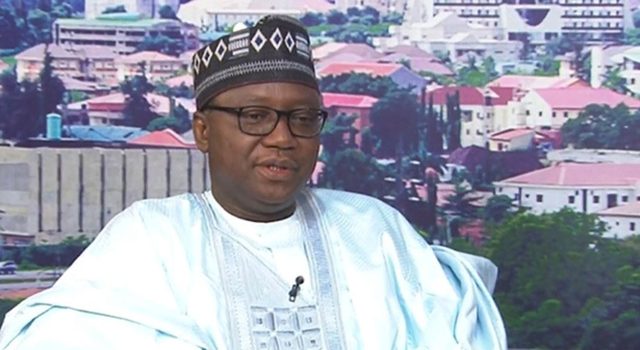The Revenue Mobilisation Allocation and Fiscal Commission (RMAFC) has denied a report that it is opposed to the new tax reform bill, particularly the proposed Value Added Tax (VAT) sharing formula.
Chairman of the Commission, Dr. Mohammed Bello Shehu, while refuting a media report that the commission was opposed to the new VAT sharing formula, at a media briefing in Abuja on Tuesday, said RMAFC was not opposed to the Tax Reform Bill or any part of it.
He said the report is not only false, but also malicious, adding that being part of the entire process that produced the proposed reforms, the commission cannot be opposed to it.
In the proposed tax bill, the VAT revenue sharing formula suggested is 10 per cent to the federal government, 55 per cent to the state, and 35 per cent to the local governments.
But the current VAT revenue sharing formula shows that the federal government takes 15 per cent, states get 50 per cent and 35 per cent goes to the local governments.
This new VAT sharing formula has generated a lot of controversy since the tax reform bills were sent to the National Assembly, with some northern state governors and even senators from the northern part of the country asking that the bill be thrown out. Their argument is that if implemented, the new VAT distribution formula will negatively impact the north.
But wading into the debate, the Commission had in a memorandum advised that the National Assembly should empower the commission through one of the bills to allocate VAT in line with its constitutional mandate.
It noted that if that recommendation was granted, it will address the ongoing debate surrounding VAT distribution and ensure equity and fairness in revenue allocation.
“The Bill, for some reasons, has sparked intense debates within the last few weeks, with the contentious issue of Value Added Tax (VAT) allocation and derivation taking center stage,” Dr. Bello said.
He said it is important to recognize that the RMAFC is a critical stakeholder in Nigeria’s fiscal framework. “Our mandate is to ensure an equitable revenue-sharing formula among the three tiers of government. We take this responsibility seriously and are committed to providing expert advice to support the government’s fiscal policy objectives,” he said.
“All that we are asking for is that the National Assembly empower us through one of the Bills to allocate VAT revenue in line with our constitutional mandate.”
The RMAFC Chairman said the proposed tax reform bills are a significant step towards integrating untapped revenue sources, enhancing Nigeria’s revenue-to-GDP ratio, and positioning the country favourably among nations with high fiscal performance.
“As a responsible and patriotic institution, the RMAFC has been actively engaged in the reform process. We have drafted a comprehensive memorandum outlining our position, which emphasizes adherence to global best practices.
“Our stance aligns seamlessly with Mr. President’s vision for a more equitable and sustainable fiscal framework,” he said.
“However, we also recognize that the tax reform bills are not without their challenges. There are concerns about the potential impact on businesses, individuals, and the broader economy, Dr. Bello explained, adding that as a responsible Commission, “we are committed to addressing these concerns through constructive engagement with stakeholders.”
He said the commission has been working closely with the National Assembly to provide technical input on the proposed tax reform bills. “Our goal is to ensure that the legislation is robust, effective, and aligns with global best practices,” he said.


